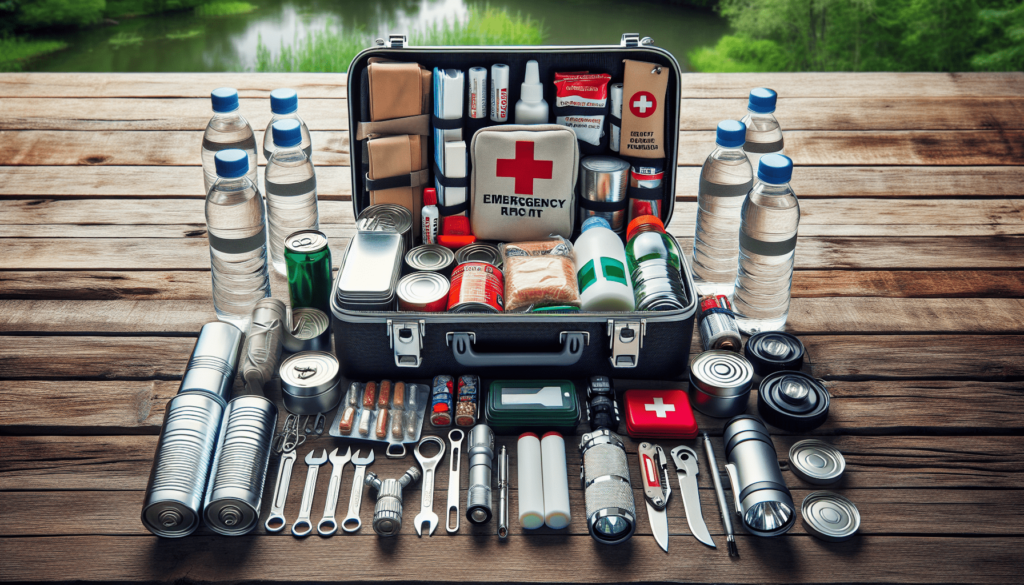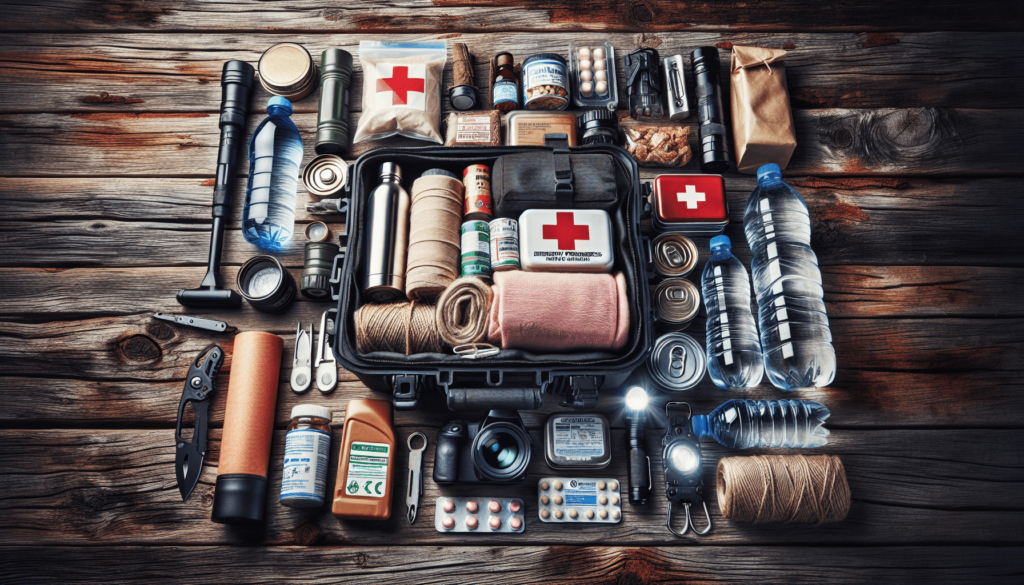
What Does It Mean When Someone Is a Prepper?
Have you ever wondered what it means when someone says they’re a prepper? At first, it might conjure up images of people living off the grid, stockpiling food, and wearing camouflage from head to toe. But let’s reel it in for a minute. I’ve always been curious about the nitty-gritty details, the motivations, and the reality behind this growing trend. So, let’s unpack this together, shall we?
The Basics: What Is a Prepper?
In a nutshell, a prepper is someone who prepares for emergencies, disruptions, or disasters. Think of it like being extra good at extreme Boy or Girl Scout preparedness. These aren’t just your average folks who buy extra batteries before a storm; preppers take it several notches higher.
If we break down the motivations, preppers usually fall into categories: those concerned about natural disasters like hurricanes and earthquakes, economic collapses, or even social upheaval. Some take it further to include pandemics, nuclear events, or the much-debated zombie apocalypse.
A Spectrum of Preparedness
Not all preppers are created equal. Some are minimalists with just enough supplies to get through a couple of weeks, while others could sustain entire villages for years. It’s like comparing someone who goes to the gym twice a week with someone who lives in the gym with a personal trainer.
The Casual Prepper
These folks might stash a bit of extra food, water, and first-aid supplies. They’re more like your neighbors who make sure their smoke detectors are working and have a go-bag in case of an emergency.
The Hardcore Prepper
Then we have the hardcore preppers—think underground bunkers, years’ worth of food, and a complete off-grid lifestyle. These are the people who could host a season of Survivor in their backyard without breaking a sweat.
The Whys: Motivations Behind Prepping
You might be thinking, “Why go to such lengths?” Good question. Here are some common reasons people dive into prepping:
-
Natural Disasters: Hurricanes, tornadoes, earthquakes—oh my! Nature is unpredictable. A hurricane is not going to knock and ask, “Is it a good time?”
-
Economic Instability: Imagine waking up one day, and your money is as valuable as Monopoly cash. It’s happened before in places like Venezuela and Zimbabwe.
-
Societal Unrest: Political upheaval, protests, and social unrest can create an environment where being self-sufficient is not just an option but a necessity.
-
Pandemics: Remember early 2020 when toilet paper turned into a luxury item? Enough said.
-
Personal Insurance: Sometimes, it’s less about specific events and more about peace of mind. Think of it as a security blanket, but instead of fabric, it’s canned goods and medical supplies.
The Core Principles
The motivations might differ, but certain core principles unite preppers:
- Self-Reliance: The idea is to be able to support yourself and your family without external help.
- Redundancy: Always have a backup. If one thing fails, another is ready to go.
- Sustainability: Long-term survival means not just stockpiling but being able to grow and make what you need.

The How: Practical Steps in Prepping
Now, let’s circle back to the “how” of it all. How does one go from a casual safety net of spare batteries to owning a full-blown underground bunker? Here are some steps folks typically take:
Food and Water: The Essentials
First things first, food and water. Imagine trying to survive a crisis while hangry. It wouldn’t end well.
| Prep Item | Description |
|---|---|
| Non-perishable Food | Canned goods, freeze-dried meals, grains |
| Water Storage | Water barrels, bottled water, water purification tablets |
| Cooking Supplies | Portable stove, fuel, pots, and pans |
Shelter and Security
Safety and shelter come next. It’s hard to enjoy all that canned soup if you don’t have a secure place to eat it.
| Prep Item | Description |
|---|---|
| Secure Shelter | Home fortification, bunkers, tents |
| Self-defense | Varies from alarms to firearms |
| Warmth and Clothing | Blankets, thermal wear, rain gear |
Medical Supplies
Think of it like assembling your very own mini-clinic. Because, let’s face it, splinters and cuts still happen during an apocalypse.
| Prep Item | Description |
|---|---|
| First Aid Kit | Bandages, antiseptics, pain relievers |
| Prescription Medications | At least a few months’ worth, if possible |
| Medical Knowledge | First aid manuals, CPR training |
Communication
When cell towers are no longer reliable, how do you stay in touch? Enter alternative communication methods.
| Prep Item | Description |
|---|---|
| Radios | Ham radios, walkie-talkies |
| Signal Equipment | Whistles, signal mirrors, flares |
| Emergency Contacts | List of contacts, meeting points |
Skills and Knowledge
As much as we love our gadgets, knowing how to do things without them is invaluable.
| Skill | Why It’s Important |
|---|---|
| Basic Survival Skills | Fire-starting, foraging, shelter-building |
| Gardening and Raising Livestock | For food production |
| Medical Training | Beyond a basic first aid kit |
The Community Aspect
Okay, so it turns out prepping isn’t just a solo endeavor. Many preppers are part of communities. I know, right? You would think it’s an ‘every person for themselves’ scenario, but it’s often quite the opposite.
Groups and Networks
Prepper groups come in all shapes and sizes. Some you’ll find online, through forums and social media, while others are local meet-ups.
- Local Meet-Ups: These are often workshops on survival skills, first aid, or even how to can your tomatoes.
- Online Communities: Forums like Reddit’s r/preppers are teeming with ideas, experiences, and even a few heated debates. It’s like the Wild West but with Wi-Fi.
Trust and Cooperation
Building a community means trust. It’s like lending your neighbor a cup of sugar but on steroids. Imagine lending them a cup of rice knowing you might rely on them when the canned beans run out.

The Gear: Tools and Gadgets
Oh, the gadgets. Some folks seriously love their gear, and who can blame them? It’s like being a kid in a candy store but for adults who think candy might have to double as currency someday.
Essential Tools
Prepping tools fall into various categories, and each has its must-haves.
Multi-tools and Knives
A good multi-tool can replace a handful of individual tools. Also, a reliable knife is worth its weight in gold.
| Tool | Use |
|---|---|
| Multi-tool | Pliers, screwdrivers, can opener, etc. |
| Fixed-blade Knife | Utility, self-defense |
Fire-Starting Tools
Who doesn’t need a way to make fire? It’s survival 101.
| Tool | Use |
|---|---|
| Ferro Rods and Strikers | Reliable spark generation |
| Waterproof Matches | For wet conditions |
Navigation Tools
Getting lost is never fun, unless you’re on a leisurely hike, and even then, it’s debatable.
| Tool | Use |
|---|---|
| Compasses | Basic navigation |
| Maps | Detailed topographical maps |
The Psychology: Mindset and Mental Health
Alright, let’s shift gears a bit. Prepping isn’t just about stockpiling goods and learning new skills. It’s also a mental game.
The Psychology of Prepping
Believe it or not, prepping has psychological benefits. It can provide a sense of control in a world that often feels unpredictable. However, it’s not all sunshine and rainbows. There’s also the risk of becoming overly paranoid or stressed.
Balancing Preparedness and Life
Finding the balance is key. Do you need to go full-on bunker mode? Maybe, maybe not. It’s different for everyone. The trick is not to let prepping override your ability to enjoy the here and now.
Mental Health Toolkit
Just as you’d prepare physically, being mentally prepared is crucial.
- Stress Management: Techniques like meditation, yoga, or even just deep breathing can be invaluable.
- Planning for Downtime: Books, games, hobbies. Yes, even during the apocalypse, you’ll need a break.
- Stay Connected: Keep lines of communication open with loved ones. You’re not alone in this.
Real-Life Preppers: Stories and Insights
It’s one thing to talk theory and another to hear from people who live this. I reached out to a few real-life preppers to get their take.
Maeve’s Story: The Minimalist Prepper
Maeve doesn’t fit the stereotype at all. She’s a city-dweller with a penchant for organic gardening. Her philosophy? Balance.
“I don’t have a bunker, but I do have a garden on my balcony and a few weeks’ worth of supplies. It’s more about being ready for disruptions without losing my mind over it.”
Jake’s Story: The Family Man
Jake, on the other hand, goes all-in. Living on a rural property, his mantra is redundancy.
“We have backups for our backups. Water cisterns, solar panels, food storage. With kids in the house, peace of mind means being ready for whatever comes our way.”
Tina’s Story: The Community Leader
Tina organizes local meet-ups and workshops.
“Preparedness isn’t about isolation. It’s about community resilience. We lean on each other for skills and support. It makes all the difference.”
Common Misconceptions
When talking about prepping, misconceptions abound. Let’s clear up a few.
Myth 1: Preppers are Paranoid
While some may be, many are simply practical. Think of it like carrying an umbrella when there’s a chance of rain. It’s about being ready, not scared.
Myth 2: It’s All About Hoarding
Prepping isn’t about hoarding; it’s about smart, sustainable stockpiling. There’s a big difference. Scenario planning involves calculated decisions, not panic-buying.
Myth 3: Preppers Want Doomsday
Most preppers don’t want disasters to happen. They would rather their supplies gather dust than be thrust into survival situations. It’s like an insurance policy you hope never to use.
Getting Started: Tips for Newbies
Thinking of dipping your toes into the prepping waters? Here are some practical tips to get started.
Start Small
You don’t have to go from zero to bunker-build overnight. Start with basics.
- Create a Go-Bag: Essentials for a few days.
- Stockpile Gradually: Buy a little extra each grocery trip.
- Learn Basic Skills: Fire-starting, cooking without electricity, basic first aid.
Plan and Educate
Knowledge is power. Educate yourself on potential risks in your area and tailor your preparedness accordingly.
Community and Resources
Don’t go at it alone. Reach out to local groups or online communities for support and advice.
Conclusion: The Balance of Preparedness
So, what does it mean when someone is a prepper? It means different things to different people. At its core, prepping is about being self-reliant, ready for the unexpected, and often, about community. Whether you stash a few extra cans of beans or build a fully sustainable homestead, it’s all part of a spectrum aimed at one thing: peace of mind.
Prepping can seem overwhelming, but it doesn’t have to be. Start small, stay balanced, and maybe even find a bit of joy in it. Because at the end of the day, it’s all about being ready—without losing sight of what you’re really protecting: the life and loved ones you cherish.
I hope this article has been helpful in unraveling the world of preppers a bit. Whether you’re just curious or considering becoming one yourself, remember, it’s all about preparedness, not paranoia.
